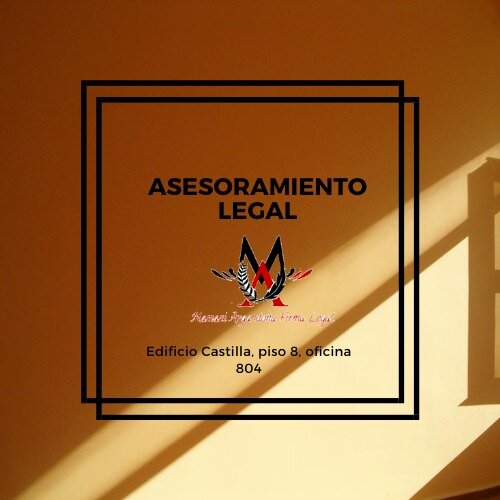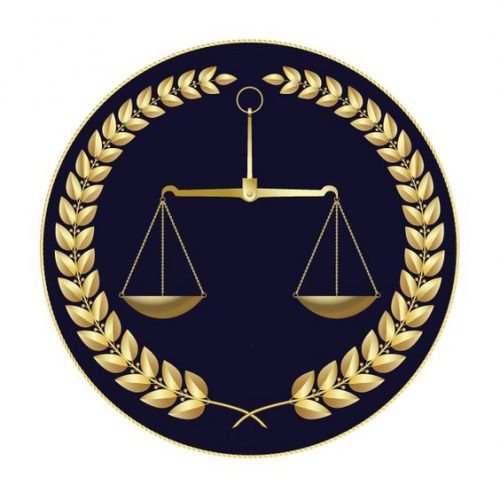Best ESG Advisory & Compliance Lawyers in Bolivia
Share your needs with us, get contacted by law firms.
Free. Takes 2 min.
Or refine your search by selecting a city:
List of the best lawyers in Bolivia
About ESG Advisory & Compliance Law in Bolivia
Environmental, Social, and Governance (ESG) advisory and compliance is an emerging legal speciality in Bolivia. It focuses on guiding companies to operate sustainably, responsibly, and ethically in line with international standards and local regulations. ESG advisory ensures that businesses minimize their environmental footprint, uphold human rights in their operations, and maintain transparency in governance. Bolivian law addresses ESG standards through a variety of sector-specific regulations and policies. Understanding these rules is essential for companies that wish to attract foreign investment, maintain their reputation, and avoid legal penalties.
Why You May Need a Lawyer
Many organizations and individuals require legal assistance regarding ESG advisory and compliance in Bolivia for several reasons. Typical situations include:
- Ensuring that your business strategies align with Bolivian environmental and social regulations
- Conducting due diligence before mergers, acquisitions, or investments in Bolivia
- Responding to audits or investigations from regulatory authorities
- Reporting on ESG performance to stakeholders or investors
- Developing internal policies to meet local and international ESG standards
- Handling disputes involving community relations, labor rights, or environmental damage
- Navigating governmental incentives or sanctions related to sustainable development
A lawyer specializing in ESG compliance can help you avoid costly mistakes, ensure adherence to legal requirements, and enhance your company’s standing among investors and the community.
Local Laws Overview
Bolivia implements ESG-related regulations through various laws and governmental policies. Some of the most relevant legal aspects include:
- Environmental regulations under the Ley del Medio Ambiente (Law 1333) require companies to conduct environmental impact assessments, obtain necessary permits, and report on environmental management.
- Labor laws such as the Ley General del Trabajo outline obligations regarding fair labor practices, worker wellbeing, and occupational safety.
- Corporate governance standards are outlined under the Commercial Code and specific sectoral frameworks. Transparency, anti-corruption measures, and community consultations are often required, especially in industries like mining and hydrocarbons.
- Indigenous and community rights are protected under the Bolivian Constitution and additional legislation, mandating consultation and benefit-sharing with local populations in certain projects.
- Bolivia is a party to key international agreements, such as the Paris Agreement, that influence national ESG requirements and reporting standards.
Compliance with these laws is enforced by various governmental bodies. Failing to adhere may lead to fines, operational shutdowns, or legal action.
Frequently Asked Questions
What does ESG stand for?
ESG stands for Environmental, Social, and Governance. It refers to three central factors in measuring the sustainability and ethical impact of an investment or a company’s activities.
What are the key ESG regulations in Bolivia?
Key ESG regulations include environmental laws (Law 1333), labor protections, anti-corruption laws, indigenous rights legislation, and sector-specific guidelines for industries such as mining, hydrocarbons, and agriculture.
Which government agencies oversee ESG compliance in Bolivia?
Main agencies include the Ministry of Environment and Water, the Ministry of Labor, the Autoridad Jurisdiccional Administrativa Minera, and sector-specific regulators for energy, mining, and other areas.
Are companies required to publish ESG reports in Bolivia?
While not universally mandatory, ESG reporting is increasingly required for certain sectors or for companies seeking foreign investment, and is recommended to demonstrate transparency and compliance.
What happens if my company fails to comply with ESG laws?
Consequences can range from fines and sanctions to the suspension of business operations and reputational damage. In severe cases, legal proceedings or criminal charges may occur.
Does international ESG certification help with compliance?
Yes, international ESG certifications such as ISO standards or industry-specific certifications can support compliance and make it easier to do business with international partners, though they do not replace local legal requirements.
Is ESG compliance only relevant to large corporations?
No, while large and multinational enterprises often face heightened scrutiny, ESG laws also apply to small and medium businesses, particularly in regulated industries or those affecting the environment or local communities.
How can a lawyer assist with ESG compliance?
Lawyers can interpret complex regulations, help design company policies, oversee due diligence, manage audits, negotiate with authorities, and defend against legal claims.
Are indigenous and community rights part of ESG compliance in Bolivia?
Yes, businesses must respect indigenous and communal rights, and in some cases, actively consult or negotiate with local communities on projects affecting their land or resources.
Where can I find official ESG compliance documents or guidance?
Key documents are available from Bolivian governmental agencies, such as the Ministry of Environment, and from international organizations providing ESG frameworks and best practices.
Additional Resources
If you need further guidance on ESG advisory and compliance in Bolivia, the following resources may be helpful:
- Ministerio de Medio Ambiente y Agua - For environmental regulations and permits
- Ministerio de Trabajo, Empleo y Previsión Social - For labor rights and workplace safety
- Autoridad de Fiscalización y Control Social de Empresas - For corporate governance standards
- Instituto Nacional de Reforma Agraria - For land use and indigenous rights matters
- Bolivian Chamber of Commerce and sectoral business associations - For industry-specific guidance
- Local law firms specializing in environmental and corporate law
- International organizations, such as the United Nations Global Compact or the World Bank, for frameworks on ESG best practices
Next Steps
If you believe your business, project, or investment needs guidance on ESG advisory and compliance in Bolivia, consider these steps:
- Assess your current level of compliance with Bolivian environmental, social, and governance laws
- Collect all relevant business documents, permits, and internal policies
- Schedule a consultation with a lawyer who specializes in ESG matters in Bolivia
- Discuss your goals, challenges, and any recent or upcoming regulatory developments
- Work with your legal advisor to create or update internal policies and compliance programs
- Stay informed on evolving local regulations and international ESG standards
Taking proactive steps with professional legal guidance can minimize risk and enhance your organization’s commitment to sustainable and ethical business in Bolivia.
Lawzana helps you find the best lawyers and law firms in Bolivia through a curated and pre-screened list of qualified legal professionals. Our platform offers rankings and detailed profiles of attorneys and law firms, allowing you to compare based on practice areas, including ESG Advisory & Compliance, experience, and client feedback.
Each profile includes a description of the firm's areas of practice, client reviews, team members and partners, year of establishment, spoken languages, office locations, contact information, social media presence, and any published articles or resources. Most firms on our platform speak English and are experienced in both local and international legal matters.
Get a quote from top-rated law firms in Bolivia — quickly, securely, and without unnecessary hassle.
Disclaimer:
The information provided on this page is for general informational purposes only and does not constitute legal advice. While we strive to ensure the accuracy and relevance of the content, legal information may change over time, and interpretations of the law can vary. You should always consult with a qualified legal professional for advice specific to your situation.
We disclaim all liability for actions taken or not taken based on the content of this page. If you believe any information is incorrect or outdated, please contact us, and we will review and update it where appropriate.
Browse esg advisory & compliance law firms by city in Bolivia
Refine your search by selecting a city.

















